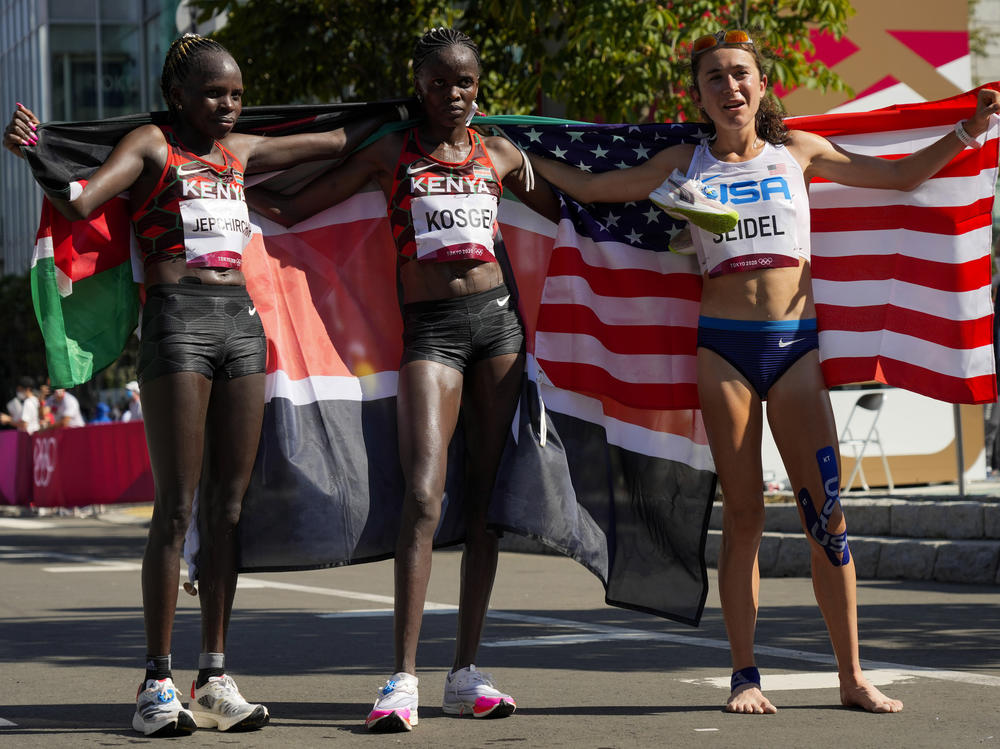Section Branding
Header Content
U.S. Runner Molly Seidel Wins Olympic Bronze In Her Third Ever Marathon
Primary Content
TOKYO — Molly Seidel had only run two marathons before competing at the Tokyo Olympics. But the 27-year-old from Wisconsin pulled off an upset and is leaving Japan with a bronze medal around her neck.
Kenya's Peres Jepchirchir took gold, and her compatriot and world record holder Brigid Kosgei won the silver in the hot and humid 26.2 mile race in the northern Japanese city of Sapporo.
"I wanted to go and be that person who, when you're racing, they're all saying, 'Who the hell is this girl?'" Seidel said after the race. "I just wanted to stick my nose in where it didn't belong and get after it. The Olympics only happens every four years, you might as well take your shot."
"I did get a bit overcome and start crying a little bit. This is the day you dream of your entire life. This is what it means to be an athlete," she added.
Seidel finished second at U.S. Olympic Trials in February 2020, behind her teammate and friend Aliphine Tuliamuk, who did not finish the Olympic race because of an injury. Seidel's only other race at this distance was the London Marathon in October.
"I was a little bit star struck. I look up to these girls a lot. I'm pretty sure Brigid almost lapped me in London," she added.
Before Olympic Trials, Seidel was working two jobs, as a barista and a babysitter.
The heat made the race especially challenging for the athletes. Seidel trained in Arizona to try to prepare. "It still was incredibly difficult but this is what we train for," she added.
The Kenyan medalists supported each other during the race, running together for most of it and even sharing a water bottle.
"It is just teamwork. We decided to help each other because we wanted to be one and two," Jepchirchir said.
Copyright 2021 NPR. To see more, visit https://www.npr.org.

